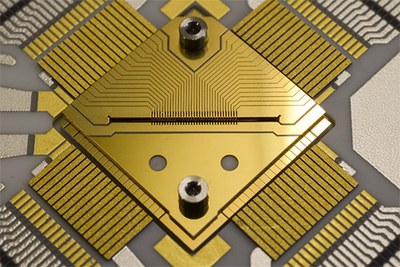Department Colloquium: Prof. Dr. Ferdinand Schmidt-Kaler (Institute of Physics, Johannes Gutenberg University Mainz)
Lecture on: "Quantum optics with trapped ions – from single ion heat engines to ions in vortex laser fields"
- https://www.physik.hu-berlin.de/en/kolloquium-en/colloquia/institutskolloquium-herr-prof-dr-ferdinand-schmidt-kaler-johannes-gutenberg-universitat-mainz
- Department Colloquium: Prof. Dr. Ferdinand Schmidt-Kaler (Institute of Physics, Johannes Gutenberg University Mainz)
- 2017-02-14T15:15:00+01:00
- 2017-02-14T17:00:00+01:00
- Lecture on: "Quantum optics with trapped ions – from single ion heat engines to ions in vortex laser fields"
- When Feb 14, 2017 from 03:15 to 05:00
- Where Lise-Meitner-Haus, Christian-Gerthsen-Hörsaal, Newtonstraße 15, 12489 Berlin
-
iCal
Prof. Dr. Ferdinand Schmidt-Kaler (Institute of Physics, Johannes Gutenberg University Mainz) will speak about "Quantum optics with trapped ions – from single ion heat engines to ions in vortex laser fields"
Abstract: Trapped single ions and ion crystal exhibit excellent control of the internal spin– and the external motional-degree of freedom. Multi-particle quantum entangled states are generated with high fidelity in view of a future quantum computer with trapped ions. However, the model system of a trapped ion crystal may be employed for a wealth of applications: We investigate genuine solid-state effects such as defect formation [1]. We use single ultra-cold ions extracted from the trap to deterministically dope solids or sense structure at the nm-scale [2]. We operate a single ion heat engine [3] truly at the nano scale, with potential of reaching the quantum regime. We position single trapped ions in vortex light fields with orbital angular momentum and prove novel selection rules [4]. I describe the most recent results from the Mainz ion-trapping group and future perspectives.

Fig.: Segmented micro ion trap for quantum processing with 40Ca+ ions
[1] Ulm, et al., "Observation of the Kibble-Zurek scaling law for defect formation in ion crystals", Nat. Comm. 4, 2290 (2013)
[2] Jacob, et al., "Transmission Microscopy with Nanometer Resolution Using a Deterministic Single Ion Source ", PRL 117, 043001 (2016)
[3] Roßnagel, et al., "A single-atom heat engine", Science 352, 325 (2016)
[4] Schmiegelow et al., "Transfer of optical orbital angular momentum to a bound electron", Nat. Comm. 7, 12998 (2016)
